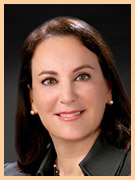 Dr. Linda Myers was “inpatriated” to Seoul to raise global mindsets, lead global talent management, develop global policies and practices, and help accelerate globalization of the SK Group. She previously earned her masters and doctoral degrees from Harvard University.
Dr. Linda Myers was “inpatriated” to Seoul to raise global mindsets, lead global talent management, develop global policies and practices, and help accelerate globalization of the SK Group. She previously earned her masters and doctoral degrees from Harvard University.
To listen to the interview, download the .mp3, subscribe in iTunes, read the transcript and or discuss this interview and this topic with other members of Korea Business Central visit the English-language discussion link (https://stevenbammel.com/category/archives/kbcforum/topics/korea-business-central-394[EXPIRED LINK REMOVED: https://stevenbammel.com/category/archives/kbcforum/topics/korea-business-central-394] ) or Korean-language discussion link (https://stevenbammel.com/category/archives/kbcforum/topics/hankug-bijeuniseu-nginteobyu[EXPIRED LINK REMOVED: https://stevenbammel.com/category/archives/kbcforum/topics/hankug-bijeuniseu-nginteobyu] ).
The full list of interviews in the Korea Business Interview Series is maintained here: https://stevenbammel.com/post/kbc_korea_business_interviews
Main Points of the Interview
Topic #1 – Dr. Myers’ Background Leading To Her Position at SK Group
- Factors leading to her global career: 1) Oldest child of deaf parents, 2) Mother’s family immigrated to US during World War II, 3) Early international experiences
- First contacted by a Korean executive recruiter in July 2007 for position in a Korean company. However, he was not able to refer Dr. Myers to anyone who had worked in South Korea before. This opportunity to be a trailblazer was an attractive challenge and Dr. Myers headed to Korea shortly thereafter without a clear job description, orientation or other preparation.
Topic #2 – Early Experiences in SK Group
- Figuring out the corporate structure of SK Group was an early challenge, leading to a determination that others Dr. Myers came in professional contact with not be confused as she had been. She made sure every presentation about SK that she gave include an explanation that SK Group is the holding company owned by the Chey family and begun in 1953 which today has about 35,000 employees in over a dozen subsidiaries, all of which operate under instructions from the holding company, which also owns the most valuable business assets.
- One of the most unsettling aspects of the job was realizing how unprepared SK was for helping a foreigner transition into a new post, and especially the Group’s inexperience with global human resources concepts and language issues.
- Learning about the company was a slow painful process, as Dr. Myers’ questions were often perceived as critical. Fortunately, she was able to locate her own resources in the Seoul business community, which helped the adjustment immensely.
- The three major factors governing the cultural and gender challenges Dr. Myers faced include 1) that Koreans adhere to the traditional collectivist Confusion cultural traits of harmony, hierarchy, in-group/out-group, school ties, favoritism, status and rank, 2) that her base of support was very powerful (at least at the beginning) because her position had been created by Chairman Chey himself and 3) that this base of support changed rapidly when the senior vice president was moved to a different position.
- Dr. Myer’s early achievements included being SK’s best public relations effort through interviews, serving on commissions and travelling the world giving presentations to global MBA programs. Dr. Myers also championed a career website for the SK Group.
Topic #3 – Later Experiences in SK Group
- The annual evaluation and reassignment of Korean executives between November and December of each year leads to a lot of uncertainty and upheaval. In Dr. Myers’ case, the reassignment of the Senior Vice President of Corporate Culture to a different operating company changed the dynamics of Dr. Myers’ position dramatically as she lost her sponsor and new personnel were less interested in her role.
Topic #3 – Lessons Learned During the Experience
- Korean corporate talk about globalization leads Dr. Myers to react with skepticism, having lived and head stories of life as a foreigner in a Korean company, as well as cautious optimism, seeing the success that LG Electronics is having. [Note: Even LG Electronics’ experience is called into doubt with the very recent departure of the expat team there.]
- The apparent lip-service that Korean firms pay to globalization may be due to the fact that Koreans are still pretty isolated socially and adhere to Confucian traditions and customs. However, with the hosting of the G20 in 2010 and other achievements, perhaps this is a critical moment in Korean business history where Korea begins to open itself up in a bigger way.
- For firms like SK to truly embrace globalization and change, the laws under which foreign talent is brought in must be clarified so that it’s not as easy for contracted employees to be let go. Many foreign employees don’t realize that they are expected to stay just two years. This is wasteful for the Korean company too, to take such short-term views. Korean firms needs to also figure out what they expect from foreign employees before bringing them over, and they need to provide the foreign talent with clear and measurable objectives for change that are supported and made accountable at the highest ranks of the organization. This includes providing each foreigner with a mentor and clearly established career path.
- To properly compete on the world stage, Korean companies need to provide a level playing field with the rest of the world and remove the barriers they’ve put up to outsiders.
- As for SK Group, a stronger customer focus and understanding of the distribution system in the US would have helped with recent businesses, and going forward, the Group needs to market its businesses in Asia, as well as in E. Europe, for betting understanding its customers and meeting their needs. This applies to China, too.
- The top three issues Korean companies must deal with for globalization include 1) improving marketing so that Korean companies get the credit they deserve, 2) strengthening the knowledge sharing system across the company and 3) finding ways to reward employees for taking the initiative.
Topic #4 – Going Forward
- Dr. Myers is currently writing an article about her time and experiences in Korea, scheduled for publication in January 2011. She is also preparing a case study geared toward MBAs with interest in the Asia-Pacific region.
- In closing, Dr. Myers expressed her very deepest thanks and appreciation to all the Koreans who befriended her and taught her the many important lessons she learned during her years in Seoul.


